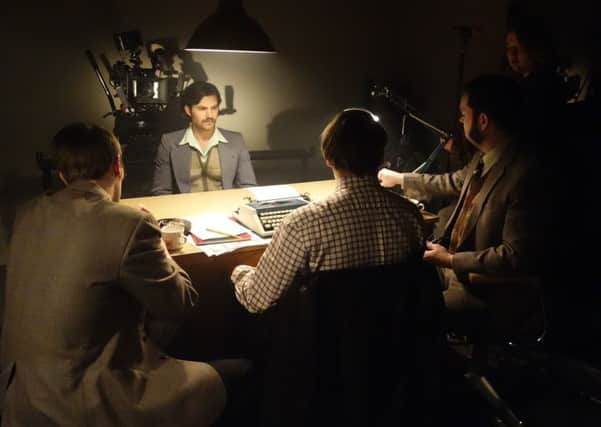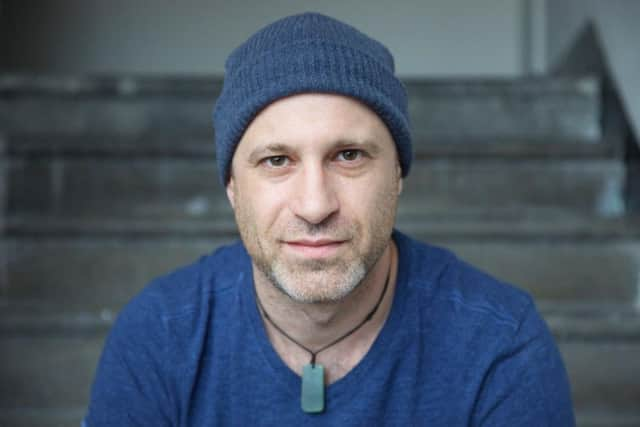The medic, a murder and a case that went really cold


The bizarre story of two men with the same surname who went missing a few months apart has transfixed the population of Iceland for four decades.
Six people confessed to their murders and went to prison, one of them for life, but many believed they had caved in only under extreme pressure from the police.
It is a story little told in Britain, until now.
Advertisement
Hide AdAdvertisement
Hide Ad

Andy Glynne, a Yorkshire NHS worker turned film producer, who is behind an international feature on the case for the BBC and Netflix, said learning of the case had been a revelation.
“I had one of those moments of discovery - ‘Oh my God, I’ve never heard of that’ - and then I realised how big it was,” he said.
“I was a clinical psychologist, and this was all about memories and whether people were manipulated into believing something they then admitted to.
“What is memory, after all? Just because you remember something doesn’t mean it happened.”
Advertisement
Hide AdAdvertisement
Hide Ad

It was in January 1974 that Iceland’s national nightmare began. The 18 year-old Gudmundur Einarsson disappeared while walking home, drunk, from a nightclub. Many believed he had slipped and died in the cold.
But 10 months later, another man, Geirfinnur Einarsson, also vanished. His car was parked outside a café on the harbour with the keys still in the ignition.
The two were not related, but conspiracy theorists had it that a serial killer with a surname fixation was at large - a scenario oddly echoed this year by the American TV series, Fargo - and the local police came under intense pressure to find him.
“They bit off more than they could chew,” said Mr Glynne, 44.
Advertisement
Hide AdAdvertisement
Hide AdHe added: “The place is truly Fargo-esque. In winter, we saw babies’ prams left out in sub-zero temperatures.”
It was two years after the first disappearance before police pulled in a suspect. Erla Bolladottir was being questioned about an unrelated fraud case when they showed her Gudmundur Einarsson’s picture. She not only knew him, she said, but had dreamt about him.
Convinced she was repressing traumatic memories, detectives subjected her to hours of interrogation, and eventually she began to wonder if she had witnessed something terrible.
Six months later, with more suspects brought in and locked up but not convicted, it started to look as if Iceland was harbouring an indigenous version of the Manson Family.
Advertisement
Hide AdAdvertisement
Hide Ad“There was no separation between the judiciary and the police, so they could keep people in custody for as long as they wanted,” Mr Glynne said.
Eventually, they brought in Karl Schutz, the German “supercop” who had investigated the militant, far-left Baader-Meinhof gang. On his watch, six people were found guilty and the country’s Minister of Justice declared the investigation over.
But it had only just begun. With only their confessions pointing to their guilt, the six insisted they had been coerced. In 2011, the alleged ringleader, Saevar Cieselski, died homeless in Copenhagen, still protesting his innocence, and after nearly 40 years, a government inquiry was announced. It has yet to report.
“The confessions were certainly unreliable,” said Mr Glynne. “But in our film, we don’t try to prove whether they were guilty or not. Without any bodies, we don’t even know if there was a crime in the first place.
Advertisement
Hide AdAdvertisement
Hide Ad“Everyone in Iceland has a theory on what happened. Many people think that at least one of the deaths was just an accident.”
The film’s director, Dylan Howitt, added: “It’s a black hole. The more you learn about it, the more elusive it becomes.”
• The feature-length film, Out of Thin Air, which will be seen on BBC4 on August 14 followed by an international release on Netflix, raised a rumoured £500,000 after an initial pitch at the annual Sheffield Documentary Festival.
“It was always going to be costly,” said producer Andy Glynne, who grew up in Leeds and whose family now lives in Harrogate.
Advertisement
Hide AdAdvertisement
Hide Ad“The BBC were very supportive but they didn’t put up much money. Then Netflix came in.”
For its director, Dylan Howitt, it was a homecoming of sorts - he had studied film at the city’s old arts college in Psalter Lane.
His previous films include a documentary about gardeners in the inner Leeds suburb of Beeston competing in the Britain in Bloom contest. “People were stealing plants and selling them down the local market,” he said.